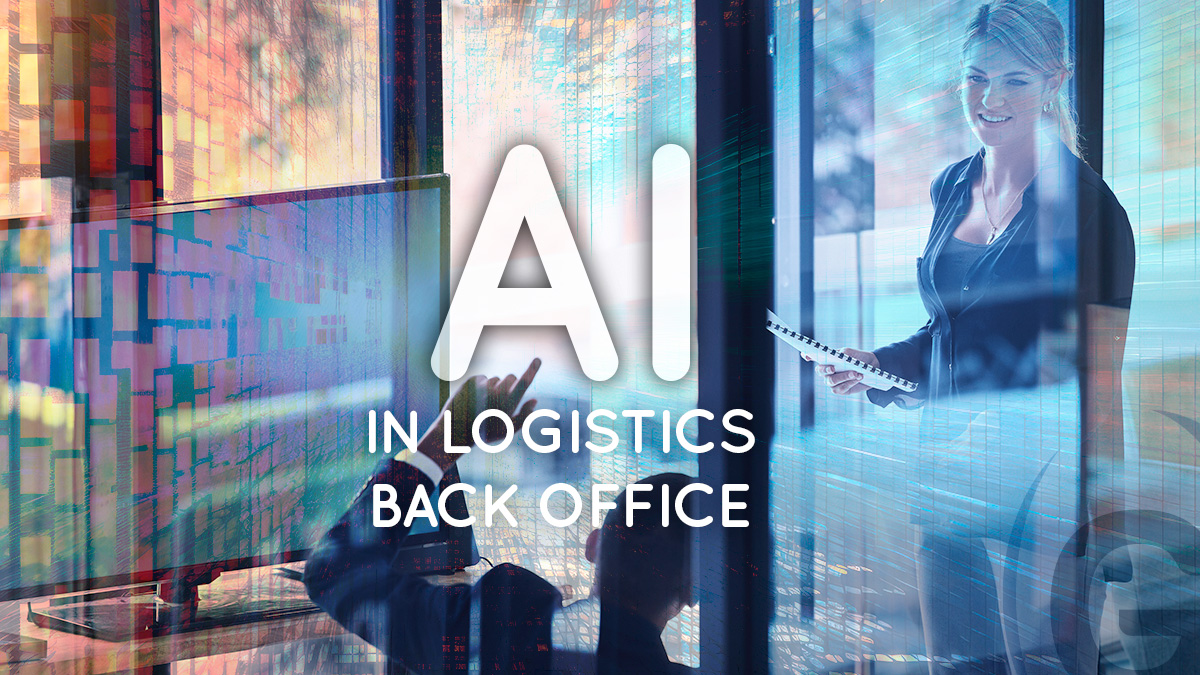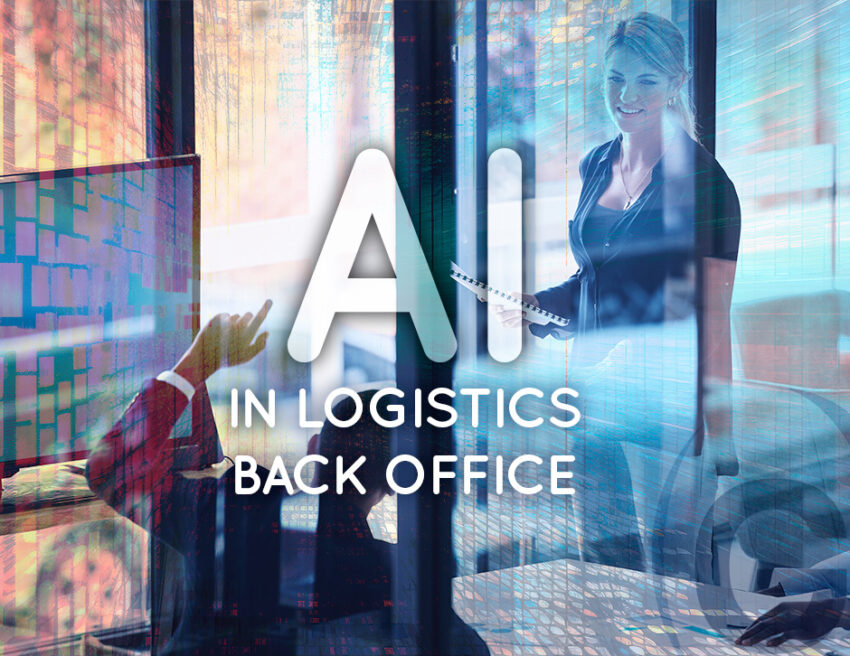Logistics remains a traditional industry, often reliant on paper and basic phones in day-to-day operations. Embracing AI is seen as ambitious and daunting for freight forwarding companies, given its perceived complexity. However, the potential for significant cost savings is undeniable, beginning with the fundamental step of effective data collection. Although online freight forwarding services are not a novel concept, adoption remains limited primarily to industry giants. Decision-makers in transportation view artificial intelligence as one of the top five technological priorities for the next three to five years.
According to McKinsey, leading market players who have embraced AI focus on four key areas: service operations, product and service development, supply chain management, and marketing and sales. They concentrate efforts on asset tracking, connected warehouses, electric vehicles, and process automation. It goes without saying that most independent freight forwarders are far from implementing electric fleets or automated warehouses. Does this imply that only giants like Amazon or DHL can benefit from AI? Absolutely not. Machine learning algorithms can enhance process management and provide greater data control, starting with AI-driven analytics and advanced decision-making. For those aiming to optimize cost-efficiency in logistics, this can be a great starting point.
How freight forwarding companies can leverage AI to streamline their backoffice jobs

Hyperautomation
Hyperautomation, also known as intelligent business process automation, encompasses the integration of AI, robotic process automation (RPA), process mining, and other technologies to streamline and automate end-to-end processes within businesses. This approach empowers freight forwarding companies to automate a wide range of back-office tasks, optimizing efficiency and enhancing operational workflows.
-
Scheduling and Tracking
Hyperautomation enables AI systems to efficiently handle tasks like scheduling transportation services, managing cargo pipelines, assigning employees to specific stations, and tracking packages within warehouse facilities. Through intelligent algorithms and real-time data processing, businesses can achieve smoother logistics operations and proactive management of resources.
-
Email Processing
RPA bots play a pivotal role in email processing by analyzing the contents of auto-generated reports and initiating targeted communication with relevant stakeholders. These bots can intelligently interpret data from reports, extract actionable insights, and trigger automated responses or notifications via email. This automated workflow streamlines communication processes and facilitates efficient decision-making across departments.
-
Report Generation
Logistics companies leverage RPA tools to automate the generation of routine reports critical for informing management and maintaining organizational alignment. RPA solutions autonomously compile and analyze data, automatically generating reports tailored to specific stakeholders’ needs and distributing them via email or other channels. This automation reduces manual effort, minimizes errors, and ensures timely dissemination of essential information.
Automated document processing
Invoices, bills of lading, and quotation sheets play vital roles in facilitating communication and transactions between buyers, suppliers, and logistics service providers within the supply chain. These documents contain critical information related to shipments, payments, and contractual terms, ensuring transparency and accountability throughout the logistics process. To optimize efficiency and accuracy in handling such documentation, businesses are increasingly turning to document automation technologies such as online quote generation platforms and the like.
Document automation involves leveraging advanced technologies such as optical character recognition (OCR), robotic process automation (RPA), and intelligent document processing (IDP) to streamline the processing of invoices, bills of lading, and rate sheets. OCR enables the extraction of data from scanned or digital documents, automatically converting it into structured, machine-readable formats. This eliminates manual data entry tasks and reduces the risk of human error. RPA automates repetitive document processing tasks like data input, error reconciliation, and routing based on predefined rules and workflows. Additionally, IDP technologies use machine learning algorithms to intelligently interpret document contents, enabling automated decision-making and improving overall processing efficiency. By implementing document automation solutions, logistics companies can enhance productivity, reduce processing times, minimize errors, and strengthen collaboration across supply chain stakeholders.
Customer service
Customer service is a cornerstone of logistics companies, as it directly impacts customer satisfaction and retention. To streamline and enhance interactions with customers, logistics companies are increasingly adopting customer service chatbots. These AI-powered bots excel at handling routine inquiries and tasks typically managed by call centers, including requests for delivery, order amendments, shipment tracking, and responding to frequently asked questions (FAQs). By using chatbots, logistics firms can improve operational efficiency, reduce response times, and provide round-the-clock support to customers. Moreover, beyond handling customer queries, chatbots serve as valuable tools for analyzing customer experience. Chatbot analytics metrics offer insights into customer behavior, preferences, and pain points. This allows businesses to gain a deeper understanding of their customers, enabling them to refine their services and enhance the overall customer journey.
How to adopt AI in your freight forwarding business
Effective decision-making, agility in adapting to unforeseen changes, and a commitment to ensuring client satisfaction are essential skills for freight forwarders. Meeting client expectations requires a carefully crafted strategy, especially as industry leaders increasingly turn to digitization for operational efficiency and enhanced client service. To remain competitive and navigate challenges small and mid-sized logistics companies must embrace digital transformation.
Digitization not only boosts operational efficiency but also improves return on investment (ROI) for freight forwarding companies. However, implementing technological innovations entails significant investments in IT infrastructure and staff training. To facilitate this transition, freight forwarders can benefit from joining leading logistics networks that offer digital platforms.
Joining one of the best logistics networks can help you become an online freight forwarder
Globalia Logistics Network, one of the best logistics networks of our times, provides all members free access to a cutting-edge freight management software offering numerous advantages. This software simplifies daily office tasks and enhances client service by enabling instant, accurate quotation delivery within minutes, streamlining operations, and improving overall efficiency. Globalia’s member-exclusive online freight quote generation platform, FreightViewer is a state-of-the-art software that helps to strengthen the digital infrastructure of the network members. It takes them one step ahead in the process of digitization. This is a free and member-exclusive tool that automates the sales process, enhances visibility, and enhances the client experience. Most importantly it provides the members with a standardized platform for sending/requesting quotations, sharing documents, and even exchanging freight rates with partners who don’t belong to the network.
FreightViewer allows you to create a digital back office. You can upload your rates on this platform to generate a quote within seconds and compare rates with different carriers. Moreover, it also allows you to filter the rates under several attributes to obtain the most accurate quotation. Uploading quotes into the system not only speeds up the quote-generating process but also creates an online showcase of your rates for your clients and partners. In other words, it provides an easy-to-use webpage that can be accessed by your clients/partners 24×7.
Wrapping up
Globalia Logistics Network stands out as the pioneer in the international freight forwarding industry by introducing instant quoting capability exclusively for its members. This unique and complementary platform is designed to digitize one of the most crucial office tasks: quote generation. By offering this innovative tool, Globalia empowers small and mid-sized logistics companies to embrace the significant industry shift towards digitization.
This online freight rate management software plays a pivotal role in helping logistics firms take their initial strides toward digital transformation. By providing members with access to this cutting-edge technology, Globalia enables businesses to adapt to the evolving landscape of the logistics industry making use of digital solutions to enhance operational efficiency and client service. This commitment to innovation demonstrates the network’s dedication to supporting its members in navigating the challenges and opportunities presented by the digital era of freight forwarding.


